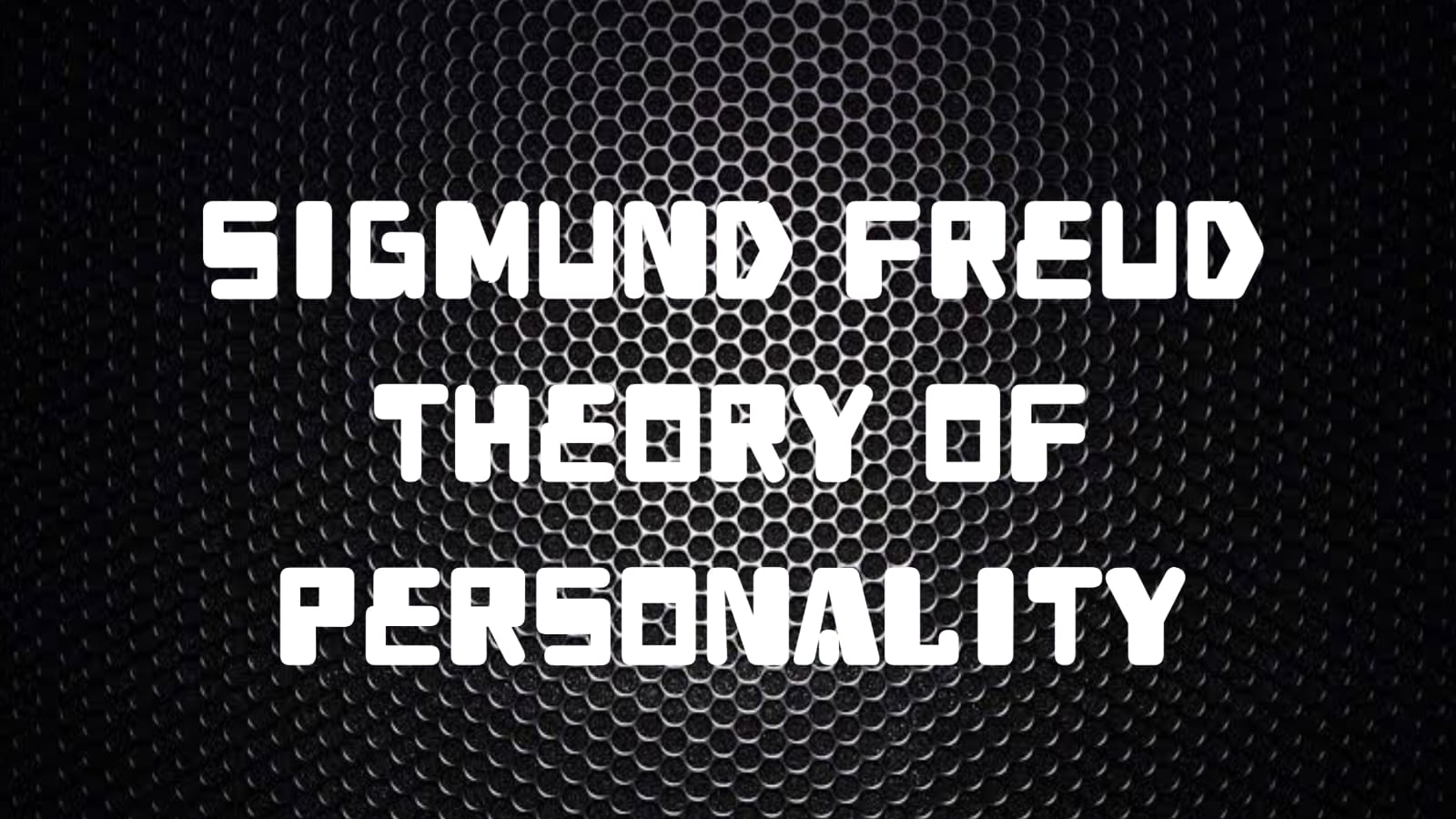Sigmund Freud Theory Of Personality PDF Free Download
Understanding human personality has been a fascinating endeavor for psychologists throughout history. One of the most influential figures in this field is Sigmund Freud, who proposed a groundbreaking theory that delved into the intricate layers of the human psyche. In this article, we will explore Sigmund Freud Theory Of Personality, breaking down its key concepts and shedding light on its enduring impact on the world of psychology.

1. Introduction
Sigmund Freud, a pioneer in the realm of psychology, revolutionized the way we perceive human behavior. His theory of personality, often referred to as psychoanalytic theory, offers insights into the underlying forces that shape our thoughts, emotions, and actions. Let’s journey through the key aspects of his theory, starting with the structural model of the mind.
2. Freud’s Structural Model
Freud proposed a tripartite structure of the mind, consisting of the Id, the Ego, and the Superego. These components interact to shape our behavior and drive our decision-making processes.
– The Id
The Id represents our primal instincts and desires. It operates on the pleasure principle, seeking instant gratification without consideration for consequences. It’s the impulsive force within us.
– The Ego
The Ego emerges to mediate between the Id and the external world. It operates on the reality principle, considering practicality and consequences. The Ego helps maintain a balance between our desires and societal norms.
– The Superego
The Superego embodies our internalized moral standards and values. It acts as our conscience, striving for perfection and societal approval. It often clashes with the Id’s impulsive nature.
3. Psychosexual Stages of Development
Freud proposed that personality development is heavily influenced by a series of psychosexual stages. Each stage is characterized by a focus on a different erogenous zone and a conflict to resolve.
– Oral Stage
In the oral stage, pleasure is derived from the mouth. This stage shapes one’s dependency and trust issues, reflecting on relationships in later life.
– Anal Stage
The anal stage centers on potty training and control. Successful navigation leads to a sense of competence, while fixation can result in orderliness or rebelliousness.
– Phallic Stage
The phallic stage introduces the Oedipus and Electra complexes. Children experience unconscious desires for their opposite-sex parent and rivalry with the same-sex parent.
– Latency Stage
During the latency stage, sexual feelings are dormant, and children focus on developing social and cognitive skills.
– Genital Stage
In the genital stage, sexual interests reawaken as individuals enter puberty. Healthy navigation results in mature relationships and a well-balanced personality.
4. Defense Mechanisms
Freud proposed various defense mechanisms the Ego employs to cope with anxiety and protect the individual’s psyche.
– Repression
Repression pushes distressing thoughts into the unconscious mind to prevent conscious acknowledgment.
– Projection
Projection involves attributing one’s own undesirable thoughts or feelings to others.
– Displacement
Displacement redirects emotional reactions from the real target to a safer substitute.
– Sublimation
Sublimation channels unacceptable impulses into socially acceptable actions, contributing to creativity and productivity.
5. Tripartite Personality
Freud’s model includes three levels of consciousness.
– The Unconscious Mind
The unconscious mind holds repressed memories, desires, and unresolved conflicts.
– The Preconscious Mind
The preconscious mind contains information that can become conscious with ease.
– The Conscious Mind
The conscious mind encompasses our present awareness and immediate thoughts.
Also Read This : Rakshabandhan Quotes In Marathi
6. Role of Dreams
Freud believed dreams were windows to the unconscious mind.
– Manifest vs. Latent Content
Manifest content is the dream’s surface-level storyline, while latent content is its underlying, symbolic meaning.
– Dream Analysis
Interpreting dreams can unveil hidden desires and conflicts, providing insight into the individual’s psyche.
7. Freudian Slips
Freudian slips are unintentional errors in speech or memory that reveal an individual’s underlying thoughts and desires.
8. Critique and Legacy
Freud’s theories have faced criticism, but his contributions to psychology are undeniable. His ideas laid the foundation for many therapeutic techniques and influenced the study of personality and behavior.
9. Conclusion
Sigmund Freud’s theory of personality offers a deep and intricate exploration of the human psyche. His concepts, from the structural model of the mind to defense mechanisms, have left an indelible mark on psychology, enriching our understanding of what drives human behavior.
Sigmund Freud Theory Of Personality PDF Download
Click Here To Download PDF For Free








